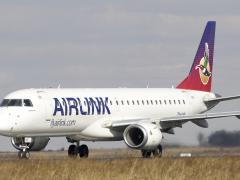South African travel agents remain cautious about charging professional fees, with uncertainty around client acceptance remaining a major barrier, despite growing evidence that similar models have been embraced overseas.
A recent Travel News poll found that if agents were to introduce a consultation fee, the majority would opt for a refundable deposit (42%) or transactional service charges (36%).
“Among corporate-focused TMCs, transactional service fees or contractual fee models have been the standard reality for roughly two decades. Corporate clients are accustomed to paying per-booking fees or retainers for managed services, resulting in more stable and transparent revenue for agencies,” said Otto de Vries, CEO of Asata.
“However, in leisure travel, explicit fee adoption is less mature, reflecting cultural norms that favour embedded pricing within travel packages, as well as an ongoing need for market education and clarity about the value of expert advisory services.”
Deposits and transactional charges
De Vries said some South African agents were opting for refundable deposits and transactional service charges because they aligned with their client psychology and agencies’ operational needs.
Refundable deposits are more attractive to leisure agencies because they:
- Demonstrate client commitment while reducing risk perception
- Are deductible from final bookings, making them psychologically easier for clients to accept
- Help qualify serious enquiries and reduce time waste on non-converting prospects
On the other hand, transactional services charges work well for both TMCs and leisure agencies because they:
- Provide predictable income per transaction
- Allow agencies to charge transparently for each component, building client trust
- Are easier to justify as fair payment for specific, itemised expertise rendered
- Are scalable depending on the complexity of the trip or the client’s requirements
“The preference for these models reflects agencies' need for predictable revenue streams while managing client price sensitivity in the South African market,” said De Vries.
Communication is key
Exchange rate pressures and economic uncertainty make South African travellers particularly cost-conscious, leading to scrutiny of any additional fees.
“South African consumers are accustomed to ‘free’ travel agency services, not understanding that costs were historically embedded in supplier commissions,” he explained.
“However, it’s important to note that clients are often not as opposed to paying professional fees as advisers may believe.”
The Professional Fees White Paper by the World Travel Agents Association Alliance revealed that, in New Zealand, 95% of agencies now successfully charged professional fees, and clients accepted it as standard industry practice.
“Many agencies in New Zealand found that, once the value of expert advice and service is clearly communicated, clients are willing to pay for it.”
Asata’s 2022 research into the South African market showed that approximately 80% of middle- to upper-income leisure travellers were willing to pay planning fees, suggesting that the market readiness existed but required better communication and positioning from agencies.
“To address concerns in South Africa, agencies must articulate and demonstrate their value clearly, explain exactly what their fees cover, and educate clients about the increasing complexity and risk in travel today,” said De Vries.
“As the New Zealand example shows, when the value proposition is communicated confidently and transparently, clients are generally receptive to fee-based models.”













